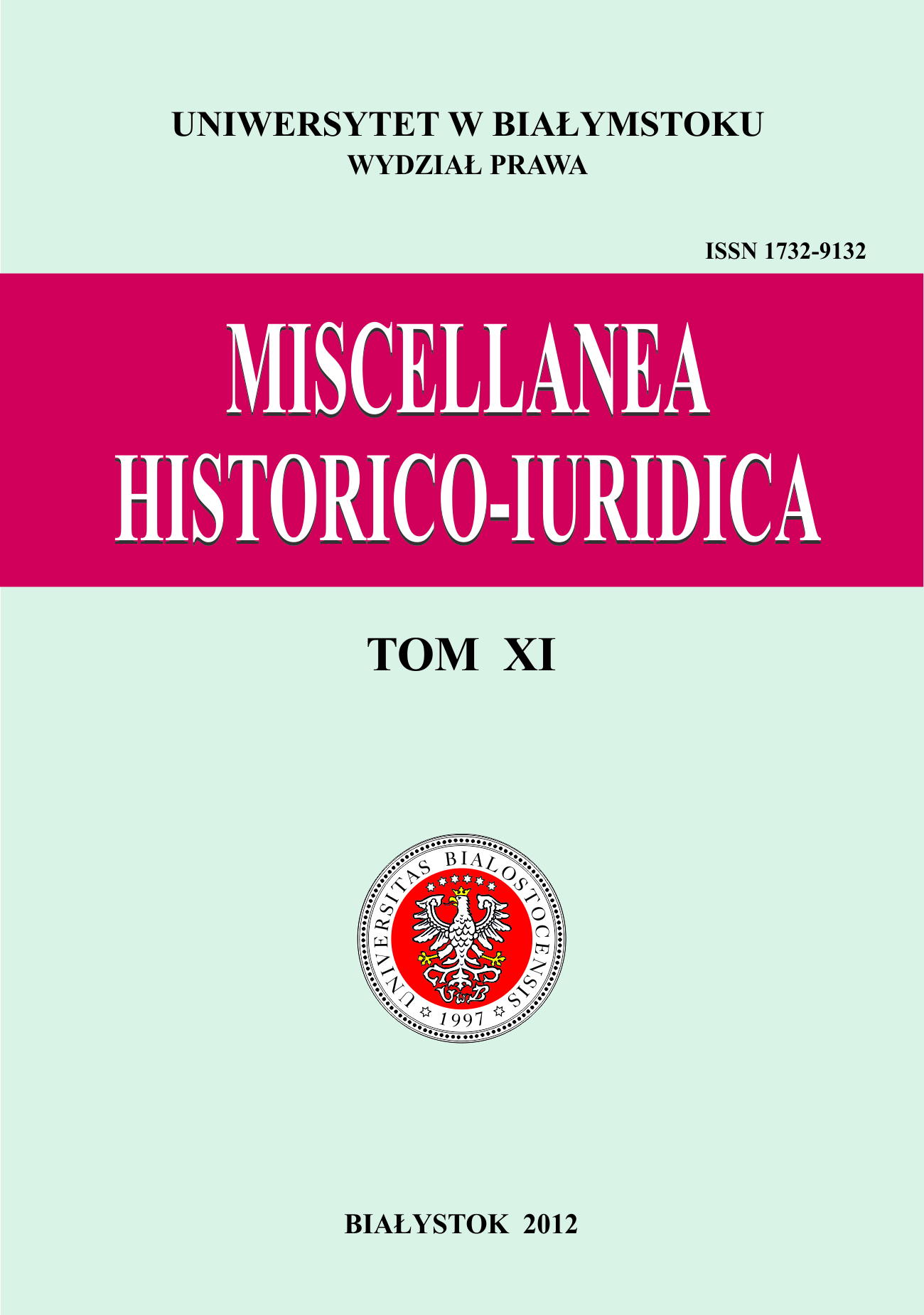Relacje Ministerstwa Administracji Publicznej z Ministerstwem Bezpieczeństwa Publicznego w latach 1945–1950
Ключевые слова:
Ministry of Public Administrativy, Ministry of Public Security, People’s Poland Polish Worker’s PartyАннотация
The legal system of the Polish state in the first years after regaining independence (the so called “liberation”) was based in its fundamental part on the basic regulations created during the Second Republic. They were adapted to the structure of state machinery typical for that time, in which case the public administration and internal security functions were concentrated in the Ministry of Internal Affairs. In July 1944, in the framework of PKWN, these competences became subordinated to two separate bodies: the ministry of public administration and the ministry of internal security. This resulted in the appearance of conflicts of jurisdiction between the two new departments. The conflicts were aggravated with the entry of these departments into the composition of the Provisional Government of National Unity led by Stanislaw Mikolajczyk’s PSL (Polish Peasant Party). The Ministry of Public Administration was headed by Wladyslaw Kiernik (who was related to the populists), and the Ministry of Public Security was led by Stanisław Radkiewicz, a PPR (Polish Workers’ Party) representative. With the intensification of political conflict between the PSL and leftist political parties, cooperation was becoming increasingly difficult between the two ministries, which eventually almost evolved in the form of open competition. The Ministry of Public Security even sought to dominate this competitive power center and gain control over civilian administration. The Ministry sought to achieve this goal both with through political means and by using the subordinated force structures. These means were an effective tool to exert pressure on the organs of civil administration. Attempts to defend the independence of the institutions subordinated to civil administration, taken by successive ministers of public administration, all failed. The key here was the importance of the special position of the security machinery in the then system of authority, as well as the fact that it was led by a representative of the dominant party in the country, the PPR. Any conflict of interest was therefore destined to be determined in favor of the Ministry of Public Security.







